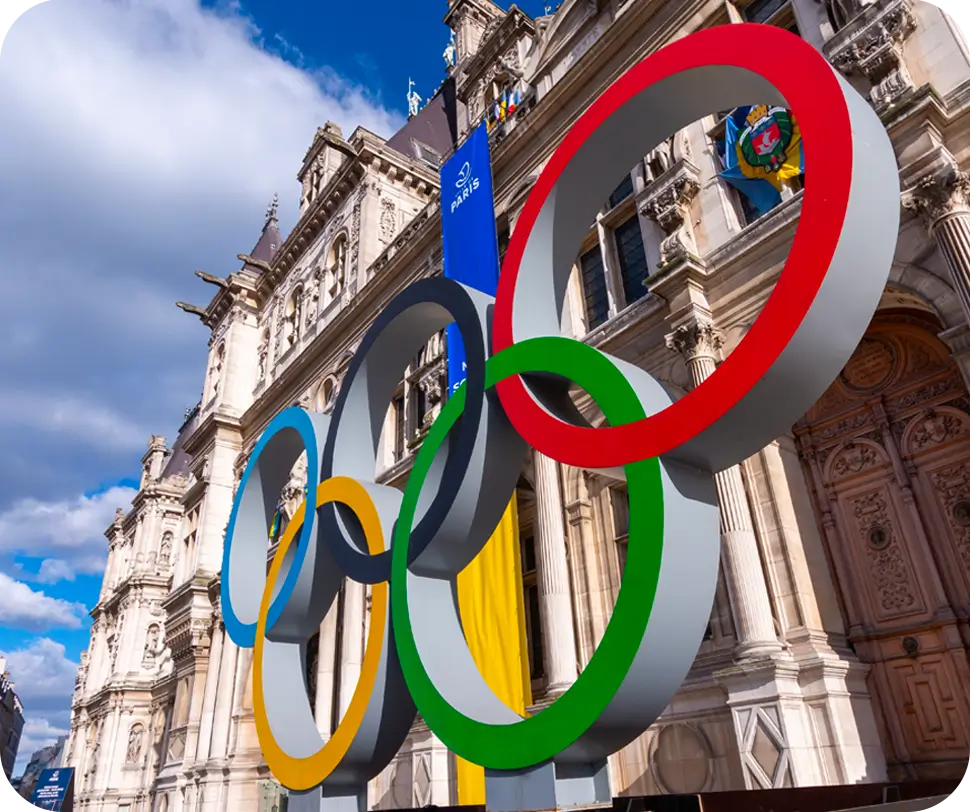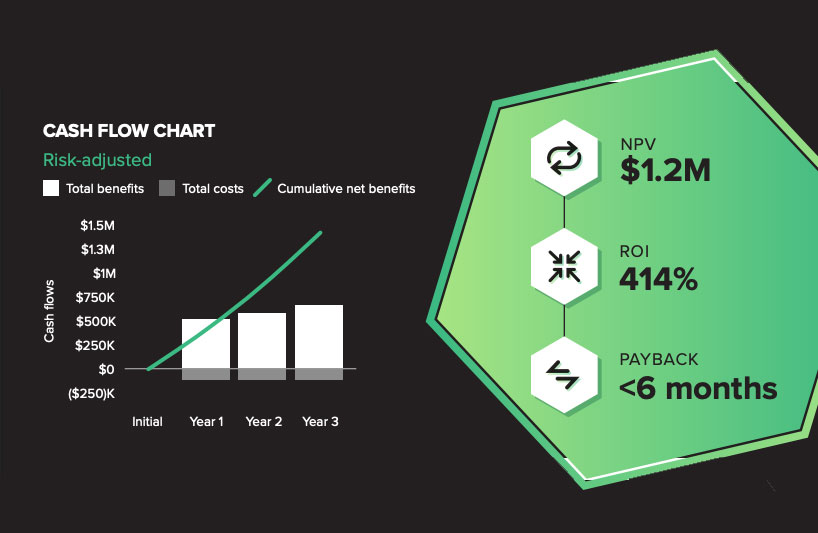The ongoing Paris 2024 Olympics represents a monumental occasion, drawing the eyes of the world to a celebration of athletic prowess and international unity with over 15 million visitors expected in the city.
Its grandeur is accompanied by significant security challenges that demand meticulous preparation and vigilance. As history has shown, high-profile events like the Olympics are prime targets for a variety of threats—from terrorism and cyber attacks to public disorder and health crises.
Drawing from my experience leading the analysis and open-source intelligence (OSINT) team during the London 2012 Olympics, in this blog, I’ll explore the top challenges in protecting the safety of athletes, spectators, event staff, officials and in turn, Paris’ reputation, during this year’s Olympics.
I will also share a number of key recommendations for how to minimize disruption to ensure a secure and successful event.
Top public safety challenges and recommendations for addressing them
No. 1: Terrorism
The threat of terrorism remains a paramount concern, with the Paris 2024 Olympics facing elevated risks of terrorist attacks. Instances of lone-actor attacks and calls for targeting stadiums necessitate robust preventive measures.
Recommendation:
The threat of terrorism requires increased security measures, such as rigorous and thorough screenings of people who enter restricted zones.
- Establish a robust network with global counter-terrorism agencies, which is also essential to staying ahead of threats.
- Use a real-time alerting tool that provides fast, actionable hyperlocal safety and security notifications to maintain situational awareness of the risk landscape in Paris.
No. 2: Cyber attacks
Cyber crime presents an unprecedented threat, with experts anticipating the number of cyber threat activity during the Paris 2024 Olympics to be ten times higher than previous years (the 2020 Tokyo Olympics faced 450 million attempted cyber attacks). Threats range from espionage, hacktivism and disruptive operations to financially motivated attacks and misinformation campaigns.
The cyber risk landscape is vast and ever-evolving, making it difficult for organizations to stay abreast of emerging threats. Thus, advanced cybersecurity defenses are required to protect operations, critical infrastructure and sensitive information of all participants, including athletes, organizers, volunteers, journalists and more.
Recommendation:
To bolster cyber defenses, advanced cybersecurity protocols and technology are critical.
- Run regular penetration testing.
- Leverage a real-time alerting tool that detects potential cyber risks from a wide range of public data sources, including the deep and dark web, and provides early warnings of them. This helps eliminate blind spots and mitigate threats effectively.
- Develop comprehensive detection and incident response systems that enable quick action to address and minimize the impact of attacks.
- Conduct security awareness training for all personnel involved in the event.
Don’t think about everything that’s going to go right. Think about everything that can go wrong and see what contingency plans you have.
— Former law enforcement officer and current security leader in the private sector.
No. 3: Geopolitical risk
The global nature of the Olympics brings together a broad spectrum of international participants and spectators. One significant challenge is the potential for international conflicts to impact the diaspora communities at the event. For instance, any escalation in global tensions could manifest domestically in the Olympics host country, heightening the risk of targeted attacks or public safety disruption.
Recommendation:
- Establish a dedicated team to monitor global political developments to anticipate and mitigate any disruptions.
- Have access to an AI-powered real-time alerting solution that can automatically translate information from global data sources and share the data via alerts to keep up with world events.
- Engaging with diaspora communities to understand their concerns and foster inclusion can reduce the likelihood of disruption.
No. 4: Labor strikes
Labor strikes, which are common in France, pose a risk to the seamless operation of the Olympic events held in Paris. In fact, a French union representing performing artists announced plans for a strike during the opening ceremony, but eventually called it off after reaching an agreement with the Games’ organizers.
Recommendation:
- Develop alternative transportation and staffing plans to ensure continuity of services should a strike occur.
- Rely on technology that provides real-time information to know about and understand the impact of strikes in a timely manner.
This dual approach minimizes the impact of labor disputes on the smooth operation of the event.
No. 5: Public health crises and medical emergencies
In 2023, more than 5,000 people died in France due to the summer heat waves. Such environmental risks, including air quality issues and water pollution, must be taken into consideration as they pose real and significant threats to the health and well-being of all those at the Olympics—from athletes and spectators to event staff and vendors.
Having to manage medical emergencies amid the large crowds and strict lockdowns presents a unique set of challenges.
Recommendation:
- Strategically place medical teams and resources around event venues, especially in high-risk areas like the opening ceremony, to improve response capabilities.
- Comprehensive preparation for potential public health emergencies and severe weather events, such as extreme heat, wildfires and disease outbreaks, will help ensure the well-being of all participants.
- Stay up-to-date with and get notified of weather and health events with an effective real-time alerting tool
No. 6: Tourist safety
The influx of tourists during the Olympics increases the risk of crimes such as pickpocketing and petty crimes. These activities not only pose safety risks but also tarnish the event’s reputation.
Recommendation:
- Make sure public safety personnel are easily identifiable and accessible throughout the city, such as visible security patrols.
- Launch public awareness campaigns to educate tourists about common scams and key safety measures, including how to safeguard personal belongings.
Best practices for securing the Olympics and large-scale events
Pre-plan and develop contingency plans far in advance
Effective and early contingency planning is vital to address the myriad security challenges of the Olympics, which require much more lead time than other large-scale events. For example, planning is already underway for the 2028 Summer Games in Los Angeles, California.
Start by conducting a thorough risk assessment to identify potential threats and develop detailed contingency plans for each scenario, such as alternative routes for motorcades, evacuation procedures and communication protocols.
Hold regular training drills for all security personnel and volunteers to ensure they are familiar with emergency procedures beforehand. And coordinate with local, regional and international security agencies to foster a unified response to potential threats, improving overall preparedness.

3 Best Practices to Ensure Public Safety at Large-scale Events
How improving communication and coordination across public sector agencies and organizations can better secure special events.
Download eBookEnsure reliable communication
Reliable communication is essential for effective coordination and crisis response during the Olympics. But the sheer number of attendees can strain existing communication networks, leading to unreliable WiFi and cellular services.
- Establish multiple communication channels, such as satellite phones and radio networks, to maintain continuous communication during emergencies.
- Develop redundancy plans for all critical communication infrastructure, which can also prevent disruptions due to technical failures.
- Formalize cross-agency communications and cooperation, which ensures information symmetry among all the different organizations involved.
Strengthen perimeter security
With massive crowds expected in Paris, there is a significant risk of attacks occurring outside of the secured areas. Conduct thorough screening of all visitors and staff entering secure zones. Consider also implementing a layered security approach around event venues—such as having multiple checkpoints, real-time risk monitoring and nearby rapid response teams—which is crucial for addressing threats beyond the immediate perimeter.
Protecting public safety at the Paris 2024 Olympics demands detailed planning, proactive measures and advanced technology integration such as real-time alerting solutions.
For example, First Alert, Dataminr’s product for the public sector, which notifies agencies and organizations of risks and critical events as soon as they emerge and as they unfold. By delivering real-time, breaking news alerts to customers, First Alert allows them to gain rapid understanding of the threats and deploy swift, well-informed responses.
By implementing these recommendations and leveraging effective technologies in the runup to and during the Olympics—as well as the 2024 Paralympics, also held in Paris—public sector organizations and agencies can better mitigate risks and disruptions, ensuring a safe and secure environment for athletes, spectators and all other stakeholders.
Discover First Alert
Learn how First Alert empowers public sector agencies and organizations to better secure the Olympics and other large-scale events.
Learn More



